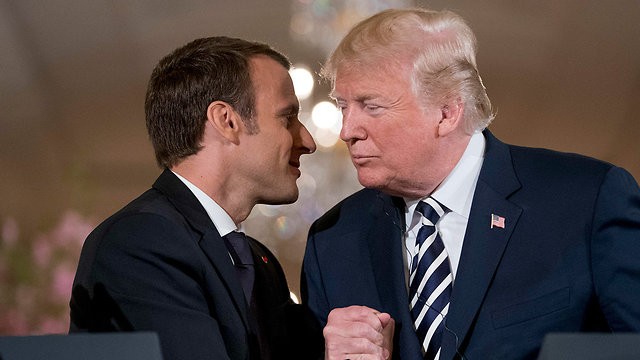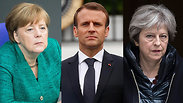

European signatories reiterate commitment to Iran deal
France's Macron, Germany's Merkel and Britain's May issue joint statement lamenting US withdrawal, reiterating 'continuing commitment' to deal; former president Obama, who signed the deal, decries pullout as well, calling it 'misguided'; move hailed by US regional allies Saudi Arabia, UAE.
A short time after US President Donald Trump announced his country's withdrawal from the Iran nuclear deal, the leaders of Britain, Germany and France issued a joint statement saying they regretted the president's decision.
The joint statement said, "It is with regret and concern that we—the leaders of France, Germany and the United Kingdom—take note of President Trump's decision to withdraw the United States of America from the Joint Comprehensive Plan of Action (JCPOA).
"Together, we emphasize our continuing commitment to the JCPOA. This agreement remains important for our shared security.
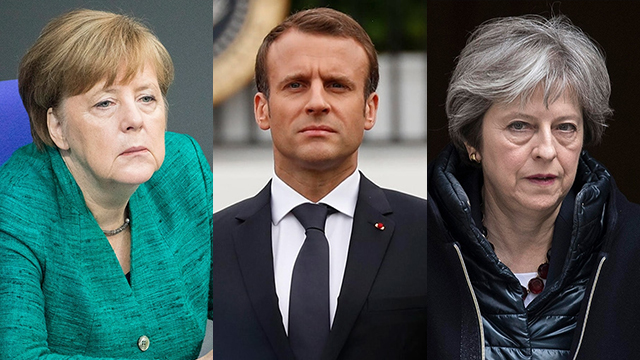
"We recall that the JCPOA was unanimously endorsed by the UN Security Council in resolution 2231. This resolution remains the binding international legal framework for the resolution of the dispute about the Iranian nuclear program.
"We urge all sides to remain committed to its full implementation and to act in a spirit of responsibility," the statement concluded.
In a separate statement, French President Emmanuel Macron said Iran's non-proliferation was at stake and that he would continue working on a broader agreement covering Iran's nuclear activity, ballistics program and regional activities.
Macron, who visited Trump in Washington last month, attempted to dissuade the American president from withdrawing from the deal, but apparently understood Trump was firm in his decision even then.
Withdrawing from the deal was "a campaign pledge (Trump) made long ago”, Macron told reporters last week, adding the president had "no serious desire to maintain or defend" the deal. Trump wanted to wiredraw, Macron alleged, "For his own domestic reasons."
Russia also voiced its regret with the American decision. The Russian Foreign Affairs Ministry stated that, "President Trump's claims were completely baseless, as Iran has followed the agreement's terms to the letter."
"There are no—and can be no—grounds for breaking the joint comprehensive action plan (JCPOA). The plan showed its full efficiency," the ministry said. "The United States is undermining international trust in the International Atomic Energy Agency."
The ministry also said it was open to further cooperation with other Iran deal members and would continue to actively develop bilateral ties with Tehran.
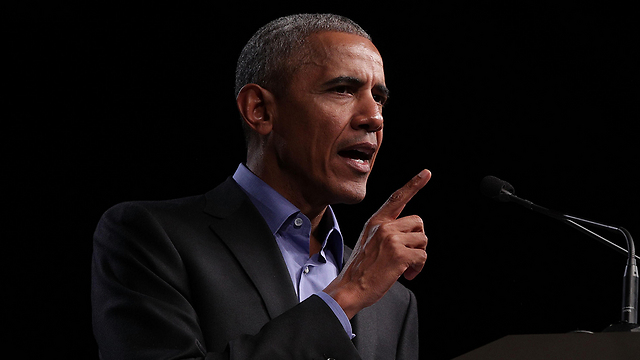
Obama says decision to withdraw 'misguided'
Former US President Barack Obama, who signed the deal in 2015, said Tuesday that President Trump's decision to withdraw from the Iran nuclear deal was "misguided."
"I believe that the decision to put the JCPOA at risk without any Iranian violation of the deal is a serious mistake," Obama said in a statement, referring to the acronym for the agreement worked out by the United States, five other world powers and Iran.
Obama said the Iran agreement significantly rolled back Tehran's nuclear program and was a model for a possible deal Trump hopes to negotiate with North Korea to eliminate Pyongyang's nuclear weapons.
"That is why today's announcement is so misguided," the former president explained.
"Walking away from the JCPOA turns our back on America's closest allies, and an agreement that our country's leading diplomats, scientists, and intelligence professionals negotiated," he said.
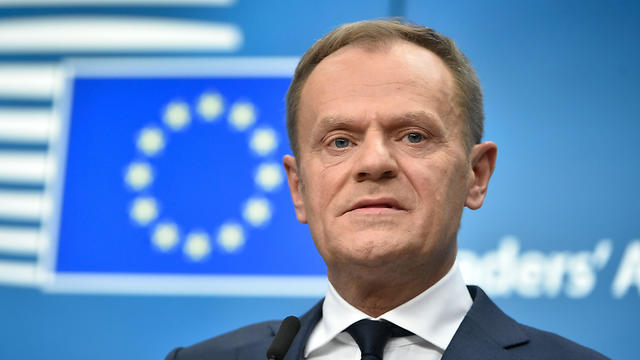
President of the European Council Donald Tusk spoke on the matter as well, saying Trump's stance on Iran "will meet a united European approach" and that all 28 EU leaders will discuss the matter when they meet in the Bulgarian capital next Wednesday.
The European Union's foreign policy chief Federica Mogherini iterated the same sentiment, saying she still believed the deal prevented Iran from attaining nuclear weapons. "The European Union is determined to act in accordance with its security interests and preserve its economic investments," she said.
The deal, she said, was the "result of 12 years of diplomatic efforts. It belongs to the entire international community."
Lastly, Mogherini called on the people of the Union and it leaders to "not allow anyone to destroy the agreement."
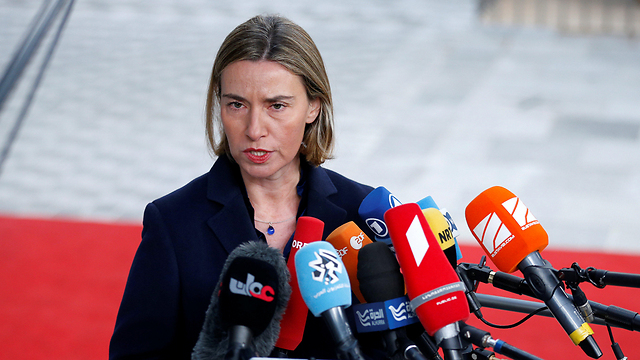
Saudi Arabia, UAE hail withdrawal
Not all international voices were critical, however, as Saudi Arabia—a Sunni Muslim power that considers Shiite Iran to be its main regional foe—hailed Trump's decision.
The kingdom, a key US ally, said it would work with the United States and the international community to address Iran's nuclear program as well as its ballistic missile program and support of militant groups in the region.
"Iran used economic gains from the lifting of sanctions to continue its activities to destabilize the region, particularly by developing ballistic missiles and supporting terrorist groups in the region," said a statement carried on Saudi-owned Al Arabiya television.
It confirmed "the need to deal with the danger that Iran's policies pose to international peace and security through a comprehensive view that is not limited to its nuclear program but also includes all hostile activities" in the region.
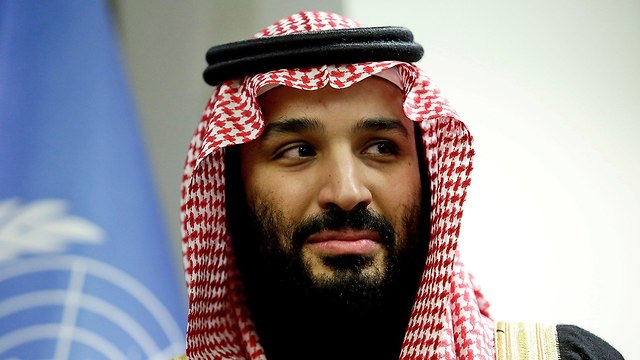
Saudi Arabia has called the 2015 nuclear deal a "flawed agreement", and in March Saudi Crown Prince Mohammed bin Salman told CBS news that his kingdom would "without a doubt" develop nuclear weapons if Iran did so.
The United Arab Emirates, another American ally in the region, said Tuesday it also backed the United States' decision to withdraw from the nuclear accord and voiced support for President Trump's strategy in dealing with Tehran.
The UAE foreign ministry urged the international community "to respond positively to President Trump's position to rid the Middle East of nuclear weapons and other weapons of mass destruction", the state news agency WAM reported.
The Associated Press and Reuters contributed to this report.














